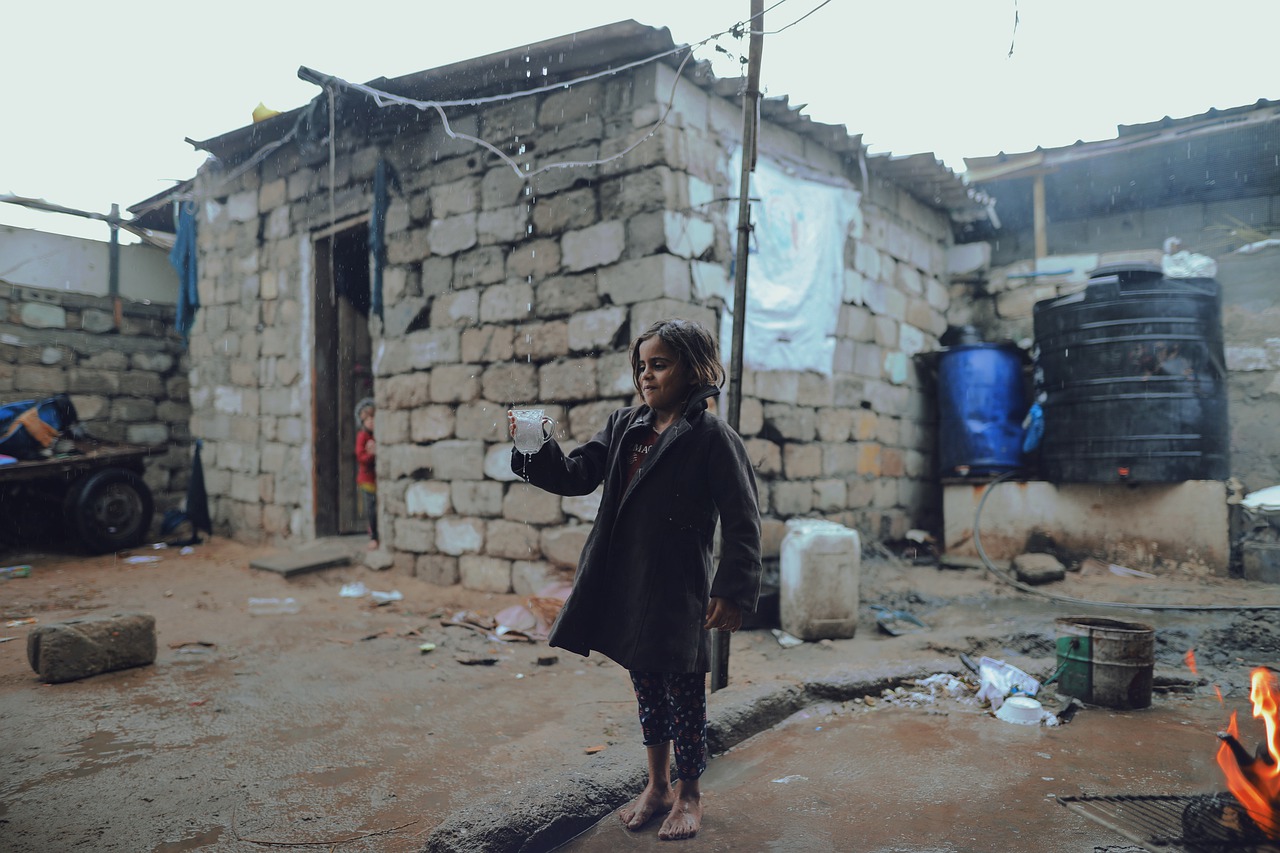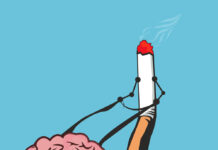A recent article published in Theory, Culture & Society proposes a “neuroecosocial” approach to understanding mental health. Sociologist Nikolas Rose of King’s College London, previously interviewed by Mad in America, and co-authors Rasmus Birk and Nick Manning explore alternative ways to understand the link between personal “lived experience” and things like “social determinants of health.” They look to an integrative theory that could go beyond a reductionistic focus on brains, toward understanding people’s experience in the context of their environments or “ecological niches.”
“It is time for those concerned with social theory to re-engage with questions of ‘mental health.’ Half a century ago, critical analyses of mental health were at the heart of our understandings of the social world – whether in the work of Erving Goffman, Michel Foucault, R.D. Laing, Frantz Fanon, Dorothy Smith, Phyllis Chessler, Elaine Showalter, Thomas Scheff…” the authors write.
“Power and social exclusion, social control and resistance; identity, gender, racialization and stigmatization; self, subjectivity and subjectification; norms, normality and normalization; knowledge and its authority – these were not merely central to our understanding of what had become termed mental illness, not merely crucial for the reform of social practices towards those who were ‘different,’ but fundamental to understanding social injustice.”

Critical commentators continue to focus on the importance of “social determinants of health” in opposition to the biomedical model. Correspondingly, there has been a call for new understandings of the linkages between the personal and the social, economic, and ecological that avoid the pitfalls of the mind-body split.
The current paper offers a new theoretical understanding of the specific ways that “neurological, ecological, and social pathways” come to influence human beings’ lived experience. The authors draw on several different concepts from social theory and biology to create a “toolbox” for further developing an integrative approach to understanding mental health non-reductionistically.
The authors note that significant research exists demonstrating the connection between certain social situations – for example, living in a large city, being a migrant, and experiencing social and economic disadvantage – and mental distress. People suffering from these situations are made more vulnerable to a range of difficulties, from experiences associated with schizophrenia and bipolar disorder to anxiety and depression.
However, they write that an “‘ecosocial epidemiological theory’ that ‘[…] truly integrates social and biologic understandings of health, disease, and well-being’” is lacking.
For their own contribution, they describe several concepts from social theory and biology which can guide a more holistic understanding.
The first of these concepts is an “ecological niche.” The authors explain:
“We need to go beyond the broad correlations of social epidemiology to focus on the actual experiences of those who live their lives in those adverse circumstances that have been identified as social determinants – poverty, poor housing, pollution, financial stress, domestic abuse, racism, stigma, trauma.”
Serving as the worldly “background” of any person or group of people is their ecological niche. This can be summarized as the “zone of living within a milieu that can be occupied by a particular organism with its mode of existence, diet, temperature range, reproductive requirements and so forth.”
As an example of applying this concept to social analysis, they discuss Greg Downey’s research on the ecological niche (or multiple niches) of street children in Brazil. On a particular day, these children might have “navigated dangerous traffic, picked their ways through unmapped favelas, evaded police and private security, and organized themselves for personal safety and conflict resolution.”
The authors point out that these children do not simply exist within a pre-set niche but actively construct and reconstruct their niches through their own activity.
The second concept here is that of affordances. An ecological niche provides certain affordances – in other words, opportunities and obstacles for different kinds of activity.
An example from the authors:
“For those Brazilian street children who inhabit São Paulo, the pavements in Avenue Paulista may afford sleeping, the pockets of window-shopping tourists may afford pick-pocketing, the dumpsters outside restaurants may afford scavenging and so forth. But for wealthy Paulista women, who live much of their lives in gated communities, they afford none of these things, and when they venture out, roads under bridges and pavements often afford little except the possibility of being robbed or assaulted; many are suffused with anxiety and vulnerability and are best avoided altogether.”
Ecological niches are filled with all sorts of affordances, affording all sorts of opportunities for different activities, ways of life, and experiences.
Further developing this line of thought, the authors discuss a concept called Umwelt. An Umwelt, drawn from biologist Jakob von Uexküll, is the idea that different species and even different human beings inhabit different worlds of experience. What is “salient” for a human being – what appears in experience, what is paid attention to – may not be salient for a cat, though there may be overlap.
As the authors note, many of the salient features of humans’ “Umwelten” depend on culture and history. The Abraham Lincoln monument in Washington, D.C. would not have the same meaning for people from the UK as it does for many in the United States, who might experience a sense of “civic duty or pride” at such statues and historically significant sites. In addition, the authors note, these kinds of monuments may involve an attempt to manage emotion and public feeling.
They extend these arguments by discussing “atmospheres and biological localities.” Here, they point out that ecological niches can provide affordances for different emotions and feelings, and even biological influences. In discussing the “toxicity” experienced by Brazilian street children, they write:
“The niches inhabited by Brazilian street children are toxic, not just because of the daily struggle to acquire the necessities of life against a pervasive threat of violence from other people, but because their vitality is constantly under threat from exposures to the pathogens and parasites with which they share their lives.”
The goal here is to begin to understand how ecological niches interact with and open people up to certain kinds of psychological, emotional, and biological development since, as the social determinants research points out, brains and bodies do not develop in a vacuum.
The authors list several research methods that could aid in mapping these effects in finer detail, such as anthropological ethnography looking at people’s lived experience within ecological niches, the “mental mapping techniques” of Stanley Milgram, smartphone apps that could assist in understanding how specific locations might be generally associated with particular emotions, among other methods.
They propose that this kind of research could inform public policy efforts to combat social and economic inequality and the deleterious mental health effects that can result from such “toxic” environments.
The authors conclude:
“A knowledge of the ways that humans with different abilities and capacities inhabit their niches could inform strategies to create ‘healthy, safe and sustainable cities’ through architecture and urban design, housing, and the management of mobilities – something already achieved to some extent, and in some places, for those ‘differently abled’ in their bodies or senses.”
“To a degree, such concerns are already motivating strategies for the management of biophysical environments from microbes to air quality, although seldom for the most disadvantaged. In developing this approach, we suggest, we would transform questions such as urban justice or the ‘right to the city’ by bringing them into connection with the consequences of the unequal niches which contour and constrain the vital existence of those who inhabit them.”
****
Rose, N., Birk, R., & Manning, N. (2021). Towards neuroecosociality: Mental health in adversity. Theory, Culture & Society. (Link)















I don’t know. But once I took control of my own situation independant of Medically and Professionally Qualified People it wasn’t long before I was functioning.
Report comment
I must agree, this reads a bit like a psychology student grasping at straws to me. Since his industry, and their DSM “bible,” were debunked as “invalid” and “bullshit” – by the leaders in their industry – eight years ago, now.
https://www.nimh.nih.gov/about/directors/thomas-insel/blog/2013/transforming-diagnosis.shtml
I wanted to link to the original Allen Frances Wired article, but apparently it’s been taken off the internet. Censorship sucks, and is illegal in the US, for good reason.
https://reason.com/2011/01/06/there-is-no-definition-of-a-me/
And I will say the elder psychologists I dealt with have turned themselves into delusions of grandeur filled lunatics. Who worked hard to attempt to steal from, and get the ethical artists and widows like me out of their churches. Because my artwork “too truthfully” depicts the systemic child abuse covering up crimes of psychologists and psychiatrists, for their pastors and bishops.
https://www.indybay.org/newsitems/2019/01/23/18820633.php?fbclid=IwAR2-cgZPcEvbz7yFqMuUwneIuaqGleGiOzackY4N2sPeVXolwmEga5iKxdo
https://www.madinamerica.com/2016/04/heal-for-life/
https://books.google.com/books?id=xI01AlxH1uAC&printsec=frontcover&source=gbs_ge_summary_r&cad=0#v=onepage&q&f=false
I’m not certain how long it will take for the psychological and psychiatric industries to garner insight into the reality that covering up child abuse is illegal in America, for good reason.
But we all are now living in a “pedophile empire,” with child sex trafficking and pedophilia running amok, largely thanks to our criminal, systemic child abuse covering up, psychological and psychiatric system.
https://www.amazon.com/Pedophilia-Empire-Americas-Shameful-Scandals/dp/B08SB7BD23
https://community.healthimpactnews.com/topic/4576/america-1-in-child-sex-trafficking-and-pedophilia-cps-and-foster-care-are-the-pipelines
And all this “mental health” industry, systemic child abuse covering up is by DSM design.
https://www.psychologytoday.com/us/blog/your-child-does-not-have-bipolar-disorder/201402/dsm-5-and-child-neglect-and-abuse-1
I hope you choose a different path, or to take your industry, in a completely different direction, Micah.
Report comment
Yes sure, neuro is a synonym of bio and still takes the first place. Much change really…
The unique other mention of socio eco feels like a way for economist to nab a piece of the cake, rather than an advancement of the wellfare or people.
I am repeating myself, but models are ideological enforcers that miss the wholeness and diversity of life and end up advancing guild interests rather than anything.
Its just a way of so called ‘specialists’ to promote themselves and of making competencies up.
Lets keep things rooted and human and simple, rather than ideological and acadamic please.
I propose ‘human accompanying’. See? Its simple really.
Of course its not very shiny as a professional and academic title, which is a big problem in an exploitive society mired in greedy and egotistical guild interests.
Report comment
Hi Micah:
Am not sure if the socioecological can realize a tacit knowledge without reference to include what seems to be a nonspoken presence of the techno in the systems. Though dated, the impact of Tavistock’s research from the Emery’s and Trist was specical about the quailty of work life. More to a structural shift, the sociologist from Binghampton University in New York would be Immanual Wallerstein. In the journey, time was spent trying to reach him on the campus, where upon driving up to the guard office, the security gave me a campus map, and pointed out to me how the ring road, outlines the campus with the shape of the brain. LOL. This side trip was realized while traveling to a National Artists for Mental Health (NAHM) see Frank Marquit and Ralph Avery who pioneered that operation in NY to understand the struggles of a viable non-profit swallowed eventually in the politics of New Albany. At that time, the organization was still located in Catskill. Finally, I would ask of your interests, how you choose to leave out the Planning Profession, part of which can include the niche of “Health Planning”?
Report comment
Does it make a difference to correct a post? For in trying to convey my perception, the reality of what has happened, to realize a better precision is more than an edit button. For there seems to be a little more of recall, as in memory, while sorting through the verb of yesterday. LOL, New Albany is across the Ohio River from Louisville, while Albany, New York is the Capitol to which NAHM would move. Their programming was phenomenal. In the Joy of our assembly, we began to understand a healing, though to be able to return to our homes, the receptivity may not have been able to adjust to our new insights by which one Life becomes and is being in awareness of LIFE.
Report comment
“Neuroecosocial” isn’t an improvement over “biopsychosocial.” “Neuro” is even more dangerous than “bio” – it gives psychiatry the privilege of having their spurious biological preoccupation first in line, and it goes “bio” one better by aiming our attention directly at the brain.
I’m glad the authors are focused more on the social and physical environment by adding “eco,” but any parsing snippets of words into a technical label is messy. It always leaves relevant disciplines out, and referring to human emotions and suffering that way diverts us from the main point – we are human beings who think, feel, act, suffer and succeed. It objectivizes us as “things” to be studied by “experts.”
If I had to use a multi-hypenated label, I would use – in order of importance – “phenomenological-psycho-social-eco.” I would omit biology entirely – it invites psychiatry to dive in to protect its guild interest, and it invites individuals to interpret their and others’ lives in medical terms.
The whole run-on naming business is wrong. Why not just say “emotional suffering”? That invites us to apply our whole human selves, as sufferers and supporters of others, without specialized mumbo jumbo. We can talk to and listen to each other, empathize, support, and use our whole minds and souls to love each other, change environments, fight for justice, be close to those who are hurting. Any human undertaking that works we can use – poetry, music, spirituality, religion, touch, talk, peer support, “therapy” stripped of exploitation, sociology – whatever.
My pet peeve – “mental health” just sucks us into the medical model. It’s hard to use those two words together without being drawn to bio-thinking. It perpetuates the fiction that that there are people who don’t suffer, and a separate group who are “mentally ill.” We all suffer and struggle at times; we’re not “ill” or “different” because we run into something very hard.
Report comment
I like it – let’s call it the “Emotional suffering for whatever the fuck reason” model. ESWTFR. Works for me!
Report comment
I think I have ESWTFR today. I claim that. I can suffering emotionally and it can be a separate issue from my biology or neurology. I can also suffer because of my biology and neurology and that’s okay too. Not everyone has to abstain from alcohol such as myself due to their addiction disability. I am 11 years sober. I’m not an “I don’t see disability” type. I do make room to change my views as I have more information, but this is my current opinion. Not trying to shut down conversation or trample anyone’s world view. Just want to speak my personal truth. Speaking of my ESWTFR I am super triggered by what is happening with Britney Spears and how the media completely victimized her. I claim the word triggered because not everyone has had the same experiences as me and would have a trauma response. They also don’t have to avoid bars. All I am going to say is I feel like people can be scapegoated for the failings of institutions. I don’t care if it’s stupid but I feel like the picture in the link below.I don’t care if my communication right now is indirect and immature. I also feel like other people can relate and that terrifies me. https://www.thedailybeast.com/banksys-shocking-diana-death-scene-a-theme-park-full-of-nightmares
Report comment
I liked the whole article till it got to this point:
“They propose that this kind of research could inform public policy efforts to combat social and economic inequality and the deleterious mental health effects that can result from such “toxic” environments.”
It is fine to propose this sort of research. It would be good sociology, anthropology and have an impact on lessening the present drug based model. But it is naive to think that public policy will change from academic research alone. Those street children in Brazil will only go when the poor organize and rise up to get rid of the rich in those gated communities. They need to be aiming this research at those who fight poverty, not those that enable it such as governments. The researchers are revealing there own class background by making this statement. They are middle class academics hoping to influence and then implement policy for the ruling class. They are not the oppressed.
Report comment
This is all good and well, and I enjoyed reading the article immensely, while listening to Rameau https://www.youtube.com/watch?v=LGT54QKqOPQ&fmt=22. The problems I see are not so much sociological as defined here, but often religious. Immigrants often come from very religious backgrounds. Have often spent hours praying, and often were left with nothing but that to give them hope. I can imagine their distress in seeing the kind of flagrant abuse of privileges they find in an area where none of the difficulties they encountered exist, and yet they liberated themselves from such problems with simple thoughts of hope and faith. They did not invest in more violent and and more diverse ways of intimidating people to behave according to set rules, while provoking even more dissent against such rules in areas where they exploit resources but not such rules as an excuse for security forces that work.
I think that THAT causes most of the distress, not toxicity, not climate, not poverty. The one problem I see is that religious environments do often dissuade people from finding the resources they need in the wilderness, actually. And so depending on the economic system to give them such resources DOES cause distress, especially knowing that they would never cause such distress in others they have left behind, and are confronted with doing that or….
Or doing what?
The development of corn, for example, a grain that was first just grass but with the help of prayer, time was condensed, and the culture was blessed with the one grain that was nurtured by faith and became a commodity, although “science” would say that it was selective domestication. I disagree. And I don’t see rice, nor wheat, nor potatoes having such a link. My mostly invisible friend has shown me this also, mulching in plastic even, how there’s hope there. I hope this helps.
Nijinsky
Report comment